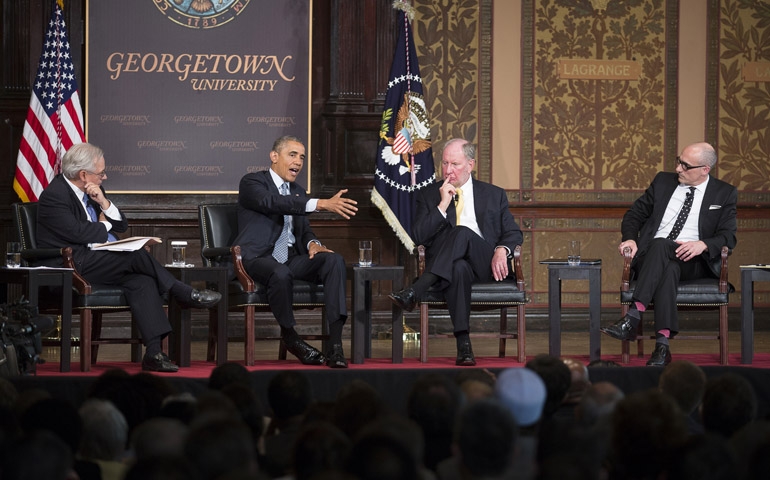On a good day, Diane, Terry or the crew at Morning Edition would kick the day off with a big news story about the Iraq war, a political fiasco, or some environmental crisis. Then, while my lunch was digesting, Rush would lead the pack of conservative call-in shows and they'd address the same stories from the other side of the aisle.
The interesting thing was...
They were using the same facts
To tell different stories.
Good parents know that to settle a dispute between children, you have to listen to both sides. You wouldn't dream of going with the same child every time just because they were your favorite. And even if one of them tended to tell the truth more than the other, to make a fair decision, you still have to listen to both sides.
The same principle applies to politics (and religion/non-religion too). We're all using the same data to tell different stories, and the only way to discover which one is right is to listen with genuine interest and compare. You don't have to listen to every voice that's out there. But you should listen to the most thoughtful and well-informed voices on both sides.
If that sounds overwhelming and impossible, here are some easy steps to help you out:
Step 1: Start from where you are. Who do you already listen to, read, or watch? What side of the fence do you fall on? Now switch channels. Spin the dial on the radio. Download a podcast defending something you don't agree with, and just listen to it.
Step 2: Ask, "What if there's more? What if there's more to this argument than I first assumed? What if I missed something? What if I'm unfairly biased? What if I never really thought this through?" (You may recognize this question from an interview I did on another blog).
Step 3: Push past what Darrell M. West has called, "Noah's Ark reporting." Noah's Ark reporting occurs when two opinionated and vocal talking heads with polar opposite views are paired up and have a verbal shouting match. Nothing is gained through these debates; viewers/listeners typically end up more firmly entrenched in their views. Instead, seek panel discussions, conferences, and articles where speakers with opposing views engage each other thoughtfully. Where you're really forced to think through the issues because they are presented so clearly.
The Catholic-Evangelical Leadership Summit on Overcoming Poverty is the best recent example of this kind of fruitful dialogue. The conversation crossed both religious and political divides, without becoming hostile. Read the transcript, Watch the video, or download the audio (podcast 5/12/2015).
Try it. I promise you won't be bored. And if you have questions, or would like suggestions about what to listen to, leave a note and I'll get back to you.
Thanks for reading!

 RSS Feed
RSS Feed
